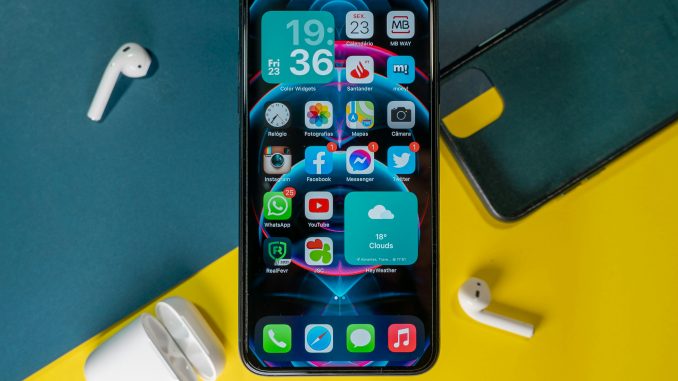
Artificial Intelligence (AI) has rapidly transformed various industries, and its integration into mobile phone technology is one of the most significant developments in recent years. The advent of AI in smartphones has revolutionized how we interact with our devices, enhancing functionality, improving user experience, and driving innovation. This article explores the profound impact of AI on mobile phone technology, examining its applications, benefits, and future potential.
1. AI-Powered Personal Assistants
Revolutionizing User Interaction
AI-powered personal assistants like Siri, Google Assistant, and Alexa have become indispensable features of modern smartphones. These intelligent assistants leverage natural language processing (NLP) and machine learning to understand and respond to user queries. By continuously learning from user interactions, they provide more accurate and personalized responses, transforming how we perform everyday tasks such as setting reminders, sending messages, and searching the web.
Enhancing Accessibility
AI personal assistants also enhance accessibility for users with disabilities. Voice commands enable hands-free operation, making smartphones more usable for individuals with physical impairments. Features like real-time transcription and voice-guided navigation empower visually impaired users to navigate their devices and the world around them more effectively.
2. AI in Photography and Imaging
Advanced Image Processing
The integration of AI in smartphone cameras has significantly improved image processing capabilities. AI algorithms analyze and enhance photos in real-time, optimizing settings such as exposure, color balance, and contrast to produce stunning images. Night mode and HDR (High Dynamic Range) are prime examples of AI-driven features that enable users to capture high-quality photos in challenging lighting conditions.
Object and Scene Recognition
AI-powered object and scene recognition further elevates the photography experience. Smartphones can now identify various objects and scenes, such as landscapes, food, or people, and adjust camera settings accordingly. This feature not only simplifies the photography process for users but also ensures that the captured images are of professional quality.
3. AI-Driven User Experience
Personalized Recommendations
AI enhances the user experience by providing personalized recommendations based on user behavior and preferences. From suggesting apps and content to optimizing battery usage, AI tailors the smartphone experience to individual needs. For instance, AI can analyze app usage patterns to recommend frequently used apps and predict user actions, making the device more intuitive and user-friendly.
Predictive Text and Smart Replies
AI-powered predictive text and smart reply features streamline communication by suggesting relevant words and phrases as users type. These features utilize machine learning to understand the context of conversations and offer appropriate responses, saving time and effort. Over time, AI adapts to the user’s writing style, further enhancing the accuracy of its predictions.
4. Security and Privacy Enhancements
AI-Based Threat Detection
AI plays a crucial role in enhancing mobile security by identifying and mitigating potential threats. AI-based threat detection systems analyze patterns and behaviors to detect malicious activities, such as malware and phishing attempts. By continuously learning from new threats, AI systems can provide robust protection against evolving security challenges.
Biometric Authentication
AI-driven biometric authentication methods, such as facial recognition and fingerprint scanning, offer advanced security for smartphones. These technologies use AI to analyze unique biometric data, ensuring that only authorized users can access the device. The continuous improvement of these systems makes them more secure and reliable, protecting user data from unauthorized access.
5. AI and Augmented Reality (AR)
Enhancing AR Experiences
The combination of AI and augmented reality (AR) has led to the creation of more immersive and interactive experiences on mobile phones. AI enhances AR by improving object detection, tracking, and rendering capabilities. This synergy allows for more accurate and realistic AR applications, such as virtual try-ons, gaming, and educational tools.
Real-Time Translation and Assistance
AI-powered real-time translation and assistance apps utilize AR to provide instant translations of text and speech. By pointing the smartphone camera at a sign or text, users can see translations overlaid on their screen, making communication in foreign languages more accessible. This technology is particularly useful for travelers and individuals learning new languages.
6. AI in Health and Fitness
Activity Tracking and Insights
AI has transformed health and fitness tracking on smartphones. AI-powered apps analyze data from various sensors to provide detailed insights into users’ physical activities, such as steps taken, calories burned, and sleep patterns. These apps offer personalized recommendations for improving fitness and overall well-being, helping users achieve their health goals more effectively.
Virtual Health Assistants
Virtual health assistants, powered by AI, offer medical advice and assistance through smartphones. These assistants can analyze symptoms, provide health information, and even suggest treatments based on user input. While they do not replace professional medical advice, they serve as valuable tools for preliminary health assessments and guidance.
7. Future Prospects of AI in Mobile Phones

Continued Integration and Innovation
The future of AI in mobile phones is promising, with continued integration and innovation on the horizon. As AI technology advances, we can expect even more sophisticated and intuitive features that enhance user experience and functionality. The development of AI chips specifically designed for mobile devices will further improve the efficiency and performance of AI applications.
Expanding Applications
AI will continue to expand its applications in various domains, from gaming and entertainment to business and education. The potential for AI to revolutionize mobile phone technology is vast, and its impact will only grow as new innovations emerge.
Ethical and Privacy Considerations
As AI becomes more prevalent, ethical and privacy considerations will remain crucial. Ensuring that AI technologies are used responsibly and transparently will be essential in maintaining user trust and safeguarding privacy. Companies must prioritize ethical AI practices and implement robust data protection measures to address these concerns.
Conclusion
Artificial Intelligence is undeniably transforming mobile phone technology, bringing forth a new era of innovation and enhanced user experience. From personal assistants and advanced imaging to security enhancements and health tracking, AI’s impact on mobile phones is profound and far-reaching. As we look to the future, AI will continue to drive the evolution of mobile technology, offering new possibilities and reshaping the way we interact with our devices.
Leave a Reply